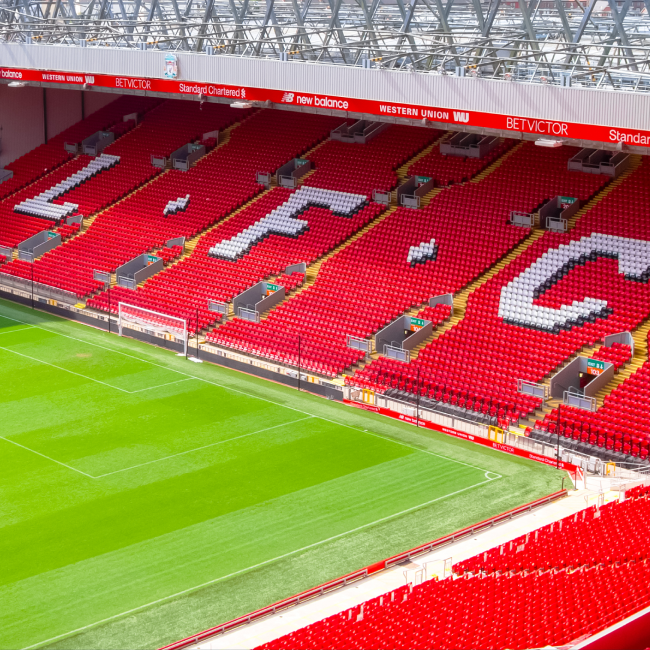- When autocomplete results are available use up and down arrows to review and enter to select.

Liverpool Football Club (FC) recently lost a cybersquatting dispute concerning the domain name liverpoolfctickets.com (CAC Case No. 107224). The club's legal representative filed the complaint with the Czech Arbitration Court (CAC), one of the organisations responsible for handling cases under the Uniform Domain Name Dispute Resolution Policy (UDRP).
This unexpected ruling explores the boundaries of nominative fair use under the UDRP and raises questions about whether a potential legitimate use is sufficient to establish a respondent's legitimate interest in a disputed domain name.
In the above case, the Complainant is Liverpool FC, a famous Premier League football club which enjoys great reputation and is the owner of several trademarks dating back as early as 1978 – LIVERPOOL FOOTBALL CLUB and LIVERPOOL FC being their main marks.
The Respondent, who is based in the United Kingdom, allegedly acquired the domain liverpoolfctickets.com in December 2024, despite the domain having been originally registered 25 years prior. The domain was being used for a parked page featuring pay-per-click (PPC) advertising links.
The main issue of this case arose when assessing the Respondent's legitimate interest under the second element. The panel considered the Respondent's current use, which involved a parked PPC page.

Over the years, UDRP panellists have repeatedly addressed the issue of parked pages containing PPC links. The consensus view is that a parked page with PPC links would not represent a good faith offering if the links compete with, or capitalise on, the reputation of a complainant's mark.
While parking often indicates a lack of legitimate interests, in this case, the panel found that the domain name was capable of legitimate use, such as reselling genuine tickets. The panel primarily focused her decision on the issue of nominative fair use.
Although not explicitly mentioned, the panel referred to the Oki Data test. Under that test, resellers, distributors or service providers may have a legitimate interest in domain names containing a trademark if they meet specific conditions indicating a good faith offering of goods or services. Typically, this exception will apply when the brand owner and registrant have a license or distribution agreement; however, this is not always necessary.
The Oki Data principles originated from a UDRP decision dated back to 2001 (WIPO Case No. D2001-0903) and shaped the concept of 'nominative fair use', which is reflected as a four-part test. A respondent:
If the above conditions are met, registering a domain, such as liverpoolfctickets.com, could be considered legitimate. It is worth noting that several panel decisions have concluded that the application of the Oki Data criteria may be appropriate, so long as the Respondent operates a business genuinely revolving around the trademark owner's goods or services, even if they are not purely a reseller or distributor.
The panel concluded that, given the "thriving market for ticket resales in the UK" and the presence of numerous third-party vendors assisting fans in reselling genuine tickets, the domain name has the potential to be used legitimately.
While this rationale is sound, the Oki Data principles do not appear to be applicable to the current facts of the case. This is because the rights of resellers are typically evaluated on their actual use rather than a prospective or potential use.
A key issue is the current lack of evidence of resales, which immediately fails parts (i) and (ii) of the test. The domain name resolved to a website featuring advertising links, such as "Watch Live Soccer," "Champions League," "Football Results," and "Football News."
Furthermore, there is no guarantee that the Respondent intended to use the website solely for selling Liverpool FC tickets, particularly given that the football-related advertising links were not specific to Liverpool FC.
Lastly, there was no disclaimer that Liverpool FC did not own the website, as needed to meet part (iii) of the test. Given that liverpoolfctickets.com looks like a legitimate domain name, an average football fan looking to buy tickets to a Liverpool FC game would likely need to be made aware that the website was not affiliated with, or endorsed by, Liverpool FC. Under the consensus view, the Respondent's use (or lack thereof) would be considered fatal to any claim of a legitimate interest. Whether there is "potential and actual, if minimal" legitimate and fair use of domain name is, therefore, debatable.
In line with the discussion above, the panel did not find the Respondent had used the domain name in a demonstrably abusive way and, as such, did not meet the standard for "cybersquatting" under the UDRP.
Another interesting aspect of the case was the age of the domain name. Although the domain name was first registered 25 years ago, the Respondent allegedly acquired it only recently, in December 2024. Under the UDRP, the date the current registrant acquired the domain name is used to assess bad faith, rather than the initial registration date, if the complainant has proven that a change of ownership occurred.
The panel concluded that Liverpool FC exploited this technicality to obtain the domain name without paying for it. The panel seemed to suggest that, had the domain name not been transferred to a new registrant, Liverpool FC would not have acted 'opportunistically' by raising the complaint.
It is also possible that the Respondent's recent acquisition of the domain name contributed to the panel's decision. The panel may have felt that the Respondent had insufficient time to demonstrate that the domain name would be used for legitimate purposes and, therefore, gave them the benefit of the doubt.
The panel's analysis is consistent with the spirit of the Policy's exception for resellers, but it is nevertheless an interesting application of the UDRP. It is possible that this decision could have been decided in Liverpool FC's favour had the consensus view under the UDRP been given more consideration. Opting to file with the CAC rather than the World Intellectual Property Organisation (WIPO) may have affected the result, given that CAC panel decisions can be less consistent.
The age of the domain name appears to have been a significant factor in the finding in favour of the Respondent. The panel appears to advocate for Liverpool FC to have pursued a private purchase of the domain name rather than initiating proceedings through the Policy, given that the domain name would be considered a valuable asset to the club.

Francesca Mauro
Legal Assistant
We can customise a solution to fit your business needs.